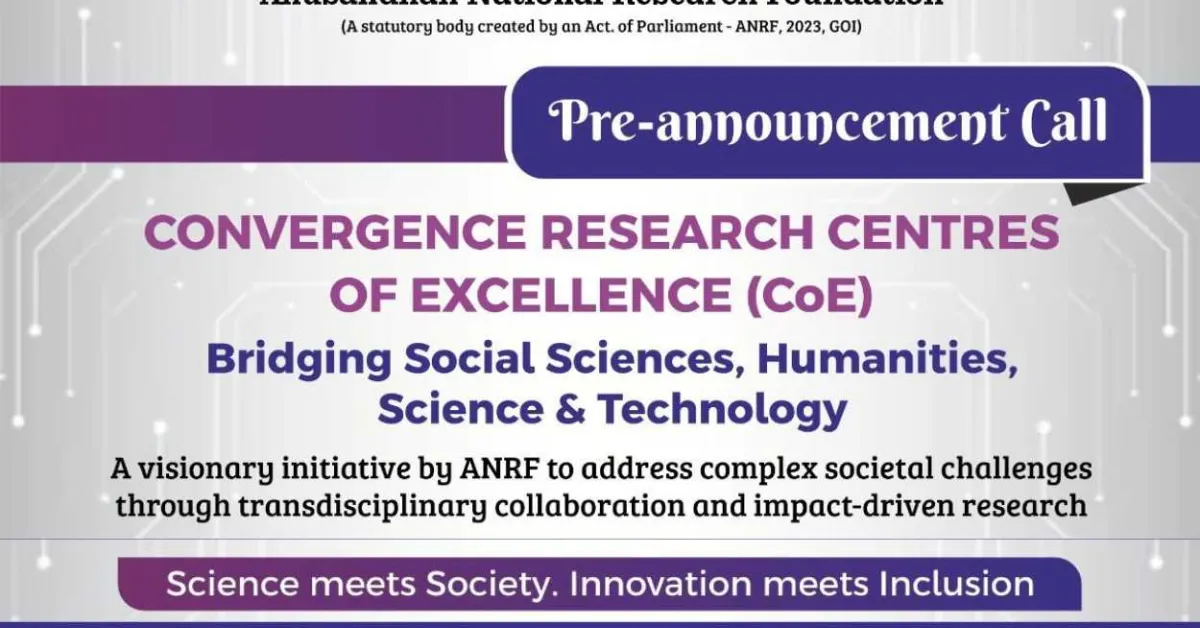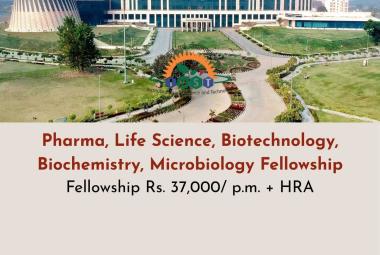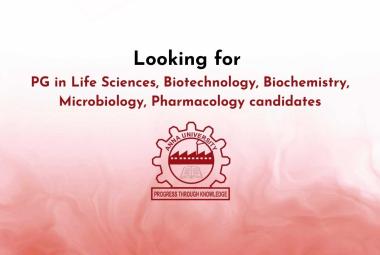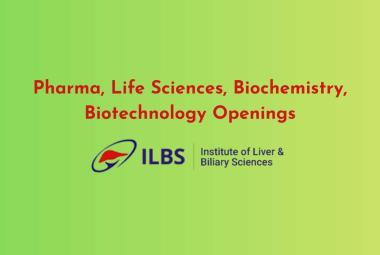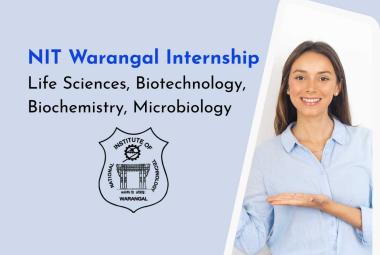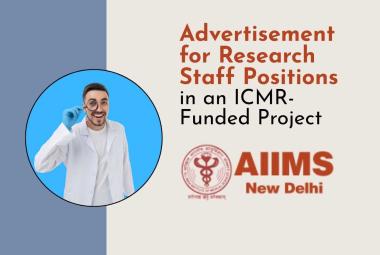ANRF-Convergence Research Centres of Excellence (CoE): Bridging Social Sciences, Humanities, Science & Technology
Contemporary societal challenges requires integrated, trans-disciplinary solutions. Critical challenges at the regional and national level necessitates a new generation of interdisciplinary research that brings together the depth of the core sciences with the contextual insight of the social sciences and humanities. In the advent of modern technologies such as artificial intelligence, robotics, big data analytics, etc., the interdisciplinary approaches will aid in understanding the regional socioeconomic problem and also pave way to achieve the sustainable development goals.
Anusandhan National Research Foundation (ANRF) aims to establish “convergence” research Centres of Excellence (CoEs) to undertake cutting edge, innovative and impactful research at the interface of Science, Technology, Humanities, Social Sciences and Society. These Centres will address complex societal challenges that require integrated perspectives from both technical and social sciences/humanities domains.
Program Objectives
The program encourages multi-disciplinary research approach to address the challenging societal problems in some of the indicative thematic areas at the intersection of Science, Engineering, Technology, Social Sciences and Humanities. The proposed centres are expected to
* catalyse interdisciplinary research at the interface of the natural sciences, engineering, and the social sciences and humanities.
* establish institutional platforms that anchor high-impact, transdisciplinary research aligned with societal priorities.
* promote the deep integration of scientific knowledge within social science and humanities frameworks to address complex and systemic challenges.
* foster long-term academic partnerships to accelerate research, build capacity, and create public value at the science—society interface.
The centre will be anchored in the institution / department specialized in social sciences and humanities, should collaborate with investigators from Science, Technology or Policy research areas as partners from the same or in other institution(s). The centres can also involve investigators from management science disciplines as a strategic partners to provide practical solutions for implementation in real world condition.
Fostering partnerships between Social Science and Humanities scholars and researchers from Science, Engineering, and Technology domains will aid in catalysing a shift toward integrated knowledge ecosystems, and inculcate a culture of cross-disciplinary collaboration in response to global challenges. Furthermore, research outcome or findings will contribute to societal and economic development, promotes technological innovation, and progress society. Research teams from Social Sciences and Humanities are encouraged to submit the project proposal in collaboration with natural and applied scientists. The proposals that are impactful, innovative and taking a bold stride in addressing societal problems will be supported under this program.
Nature and Duration of Support
• The nature of funding support will be aligned with the scope and proposed thematic areas defined by ANRF.
• Each project will be supported for a maximum period of five years, with a maximum funding of ^25 crore.
Program Guidelines:
The investigators involving single institution or multiple institution may submit the proposal in any of the specified indicative thematic areas.
Eligibility Conditions (Single Institution Model)
1. Applicant’s eligibility:
Applicants (Principal Investigators (PI) and Co-Principal Investigator(s) (Co-PI(s)) should be Indian citizens. Foreign nationals (including OCI and PIO) employed in recognized academic/R&D institution as described under the institutional affiliation category are eligible to apply provided they fulfil eligibility criteria notified by ANRF.
2. Institutional Affiliation:
The Principal Investigator (PI) and all associated investigators must hold regular academic or research positions in an academic institution recognized by UGC/AICTE/PCI/ or publicly funded organization/laboratory under a ministry/Department, or a Private R&D institution recognized by DSIR-SIRO.
3. Intra-Institutional Collaboration:
Proposals must involve interdisciplinary collaboration within the institution. Faculty from Social Sciences and Humanities may collaborate with experts in Science and Engineering disciplines within the same institution.
4. Project Leadership:
The Investigator from the Social Sciences or Humanities with proven track record in the relevant domain will serve as the Principal Investigator, who will lead the proposed project.
5. Role Definitions:
The investigators from the collaborative departments such as Science Engineering and Technology or from the department of Humanities and Social Sciences will serve as Co¬principal Investigators (Co-PIs). One co-PI (s) is mandate from the respective disciplines.
6. Academic Qualifications:
The Principal Investigator must hold a doctoral degree in Social Sciences or Humanities. Co¬Principal Investigator(s) in Science, or Engineering discipline should also hold a doctorate degree. The above criteria is relaxed for co-investigators in the fields of Social Sciences and Humanities. Investigators with Master’s degree and atleast 5 years of academic/research experience in the social sciences/humanities are also eligible to serve as co-PI.
7. Research Experience:
The Principal Investigators and co-Principal Investigator must have considerable research experience in the proposed field of study and having demonstrable research track record in terms of publications in quality peer-reviewed journals, books, reports, etc.. The co-principal investigators (co-PIs) from the field of Social sciences and humanities should have minimum two or more peer-reviewed publications in quality journals, book chapters, reports, etc.
8. Team Composition:
A team of investigators from different disciplines ( Social sciences / humanities / Science / Engineering) must be collaborated to conduct research. Each proposal should have one Principal Investigators and minimum of two Co-Principal Investigators (Co-PIs). One from the social sciences or humanities and another experts from Sciences, Engineering or technology discipline. The centres can also involve investigators from management science disciplines as a strategic partners to provide practical solutions for implementation in real world condition.
9. Service Requirement:
The Principal Investigator (PI) and Co-Principal Investigators (Co-PIs) should have at least 6 years of service remaining before superannuation by the time of submission of application.
10. Research Associates, Postdoctoral fellows, Ad-hoc faculty, Visiting Scientists, consultants, project fellow and faculty members whose contract is renewed every year are not eligible as PIs or CO-PIs. ANRF reserves the right to determine the eligibility for the cases not mentioned above.
Eligibility Conditions (Multi-Institution Model)
Recognized academic or research institutions with a demonstrable track record in the Social Sciences and Humanities (SSH) may partner with Research Institutions or Universities. The partnering institution will formally collaborate in the establishment and operation of the centre.
The eligibility requirements for institutions and investigators under the Multi-Institution model are the same as those outlined for the Single Institution model.
Mode of Application and Selection :
• Principal Investigator is eligible to apply one proposal during a call.
• The call for applications will be notified on the ANRF website anrf.gov.in and online portal “anrfonline.in” . Proposals for Convergence Research Centre of Excellence (CoEs) will be considered for evaluation only if submitted through the ANRF online portal. Proposals submitted through any other mode or platform will not be considered for evaluation.
• The selection will be based on the recommendation of the committee constituted for this program by ANRF. If required, the PI and Co-PI(s) may be called for discussion/presentation.
Mode of Proposal Submission :
For successful online submission of the application, the following points to be noted :
• PI and Co-PI(s) should first register in the ANRF online portal, anrfonline.in Click here to register.
• After log-in the applicants are required to fill in all the mandatory fields as specified in that section.
• The key details such as Proposal Title, Project summary, Key words, Aims and objectives, Justification for multidisciplinary research, Expected outcome and output and Budget (Equipment, Research personnel, Consumables, Travel, Contingency, Other cost (if any) and Overheads) have to be entered within the specified character limit at the time of proposal submission.
• The detailed technical document should be uploaded as a single PDF file, not more than 10MB as a Other Technical Document (OTD). Download Template.
Mode of Funding
• The funds will be provided directly to the Lead institution where the Principal Investigator and Co-Principal Investigator(s) (co-PI(s)) are affiliated.
• If the application involves multiple institutes, the funds will be provided to the lead institution where the Principal investigator is affiliated, who will then disburse funds to other partnering institutions associated with the project.
• The exact amount of funding to be given to the each institution will be decided by the ANRF
• The CoE will get support in two tracks. In track 1, funds will be allocated for first three years and further extension of support (for another 2 years) will be based on performance and the recommendation from the committee constituted for this purpose.
Documents required (in PDF format)
• Other Technical Details.
• Biodata (under user profile section).
• Endorsement letter (single/multi) from the Head of the Institution(s).
• Consent letter from the PI and Co-PI(s)
• Plagiarism Undertaking
Thematic Areas
The indicative thematic areas at the intersection of Science, Engineering, Technology, and Social Sciences & Humanities are listed below. Investigators may also submit the proposals other than the listed thematic areas that address complex societal challenges. Support under this Centre of Excellence (CoE) program will be provided through a competitive funding model.
Thematic Area & Indicative Topics
Digital Humanities
• AI meets Indian Traditional Music and Dance
• AI for Traditional Knowledge systems
• Social media polarization and public discourse
• HCI & AI for uplifting a billion people (education, health care, finance, skill development, entrepreneurship, etc)
• AI Ethical technology and soft skills
• Digital technologies and promotion of Indian culture and cultural diversity
• AI: Centre for governance & regulation
• Tourism and experiences amplified by technology, mass and niche communications
• Technology for Archaeology
• AI and Labour market impact
• AI and cognitive technologies for skilling, capacity building and entrepreneurship
• Psychological impact of automation on workers
• Reskilling policies in an AI-dominated economy
• Ethics of replacing human labour with machines
• Technology for governance
Health and Psychology
• Geospatial technologies (GIS) and public health
• Public health informatics, and big data for inclusive health and well-being for
all ages and income groups
• Digital Technology- health informatics and AI for care economy
• Big data and predictive analytics for surveillance and assessment
• Mental health: Solutions beyond medication, focusing on dance, art, and culture
• AI and Yoga for lifestyle management in modern society
• Mental health and human purpose in a technological world
Computational Economics
• IR 4.0 applications for technological and supply chains disruptions
• Fintech, Financial Inclusion and Economic Resilience
• AI for creative economy
• Future of E-commerce and Digital Trade- platform economy and welfare.
• AI and Economic forecasting with multi-level risk assessments.
• Digital labour platforms and economics
• Nudges and behavioural economics with technology innovation
Climate Change Resilience
• IR 4.0 applications in renewable energy/ Green Transitions
• Industrial Ecology, Mining and Explorations and sustainable development
• Predictive AI, GIS and Space technologies for climate change mitigation (natural disasters, calamities, pollution)
• Technology and real-world environmental challenges
• Ecology, science, and technology -AI and Palaeontology
Rural Development
• Rural economy
• Design of micro-incentives for e-governance adoption in rural settings
• Interface of science, technology and rural development for empowering farmers (including smart and climate resilient agriculture, precision agriculture, etc)
• Adoption of sustainable and traditional value addition and scientific solutions
• Digital technologies, post-harvest value addition and entrepreneurship
• Digital agriculture and Drones
• Technology empowerment of farmers
• Technology for skill development
• AI, robotics, and labour market transformation
• Tech solution for rural hygiene
• Technology and agri-waste management
Law and Emerging Technologies
• AI Ethics and Healthcare
• AI and algorithmic accountability
• Digital privacy, consent, and data sovereignty
• Technology and human rights
• Ethical frameworks for biotech, surveillance tech, and autonomous systems
• Ethics of automation and the future of work -- Platformization and gig economy governance
Data Science in Public Policy
• Behavioural tech for governance
• Effective and efficient delivery of public services
• Applied behavioural economics + mobile nudges to drive sanitation, vaccination, and school attendance
• Geo-fenced behaviour interventions using mobile data (e.g., urban mobility)
• Technology-nudge labs at the state level
• Reimagining information asymmetry with technology
See All Ahmedabad Alerts B.Pharm Alerts M.Pharm Alerts M.Sc Alerts
See All Other Jobs in our Database
Subscribe to Pharmatutor Job Alerts by Email


